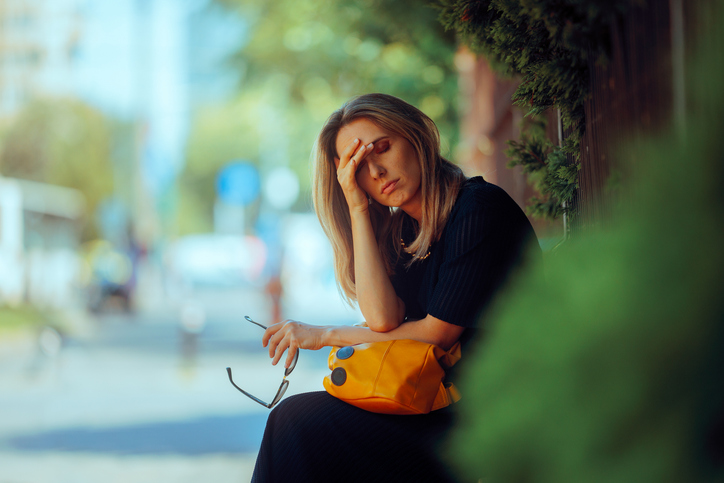Migraines and Hormones
Many women suffer from this debilitating condition, and here is some helpful advice.

It is one of those sex biases that we never even think about, but prior to puberty it is boys who get more migraines
Once those hormones hit however the ratio changes until by the time they are adults women are getting migraines three times more frequently than men.
Girls are most likely to have their first migraine headache in their teens and it usually occurs with the start of menstruation.
This time of hormonal upheaval can be a factor in many conditions, but it does seem that the decline in the blood level of oestrogen at the onset of menstruation is a trigger.
It may be that it is the fluctuating levels of oestrogen, rather than the oestrogen itself, that are at the root of this condition.
Our central nervous system is highly sensitive in responding to hormonal fluctuation and it is an entirely normal reaction.
How women are affected
Once out of the teenage years, there is a marked increase in the number of women suffering migraines, mostly after the age of 40.
The good news is that it does seem to diminish once menopause starts, so that is one potential blessing!
Many women as part of their PMS symptoms do suffer from headaches, but they usually cease when the period starts.
Migraines related to menstruation tend to happen 2 days before and 2 days after the period’s onset and the first day is when they are most likely.
A headache is a headache, but migraine is unmistakable because of its distinct symptoms.
The pain is intense and often on one side of the head only and you will be highly sensitive to light and sound.
Nausea is common and any movement makes it worse with many experiencing disturbance to the vision – seeing flashing lights or an aura around objects.
Some things can make it worse, the contraceptive pill for instance has been linked to an increase in migraines but some women have found that it has improved them – that hormone fluctuation may have been balanced out by the pill.
If you are on the pill for either contraception, or to control heavy bleeding, then talk to your doctor about the dosage of oestrogen you are receiving as the migraine risk is linked to that, and not the the progestin the pills contain.
What can help?
There is no permanent cure for migraines, though there are things that can help. First identify if you have a specific trigger that brings on your migraine and avoid it.
The most common triggers are:
* stress
* sleep disturbances
* fasting
* hormone imbalance
* bright or flickering lights
* odours
* cigarette smoke
* alcohol
* cheese
* chocolate
* monosodium glutamate
* aspartame/sweeteners
* caffeine
Natural help can include the mineral magnesium, vitamin D and Omega-3 supplementation as well the herb feverfew and 5-HTP.
The latter is a compound produced in the body from the amino acid tryptophan to make the hormones serotonin and melatonin in the body.
Therapies that many have found relief with include acupuncture, chiropractic and biofeedback.
Helpful information:
Dr John Lee – the pioneer of bioidentical progesterone cream usage – stated that women who regularly experience migraines find they are often linked to oestrogen dominance.
Progesterone helps by rebalancing your hormones so this is less likely to occur.
Headaches are usually caused when the blood vessels are dilated which is often a feature of oestrogen dominance, but progesterone does restore normal vascular tone to counteract the dilation in a safe and natural way.
If the Migraine headaches tend to recur 4 to 5 days before the end of the menstrual cycle, this is called a Pre-Menstrual Migraine and is caused by rapidly dropping oestrogen levels.
Dr. Uzi Reiss, in his book, “Natural Hormone Balance for Women”, advocates treating Pre-Menstrual Migraines with bioidentical oestrogen and bioidentical progesterone which stabilises hormone levels.
Dr. Broda Barnes was an American physician and Professor of medicine who studied endocrine dysfunction, particularly hypothyroidism, and he pointed out that frequent Migraines can also be associated with low thyroid function.
Even low blood sugar can be a causative factor BUT if the headaches continue, then please go and see your doctor as a precaution.
The NHS advises that a migraine diet should focus on knowing your potential triggers – though they can be different for everyone so you need to monitor yourself.
Don’t forget the environmental factors as well because bright light, your computer screen or perfume and even household cleaners can trigger migraine in sensitive people.
As stress can certainly be a factor, you might also find this article helpful, just check that citrus is not one of your triggers.
https://anna.blog.wellsprings-health.com/the-de-stress-diet/


















